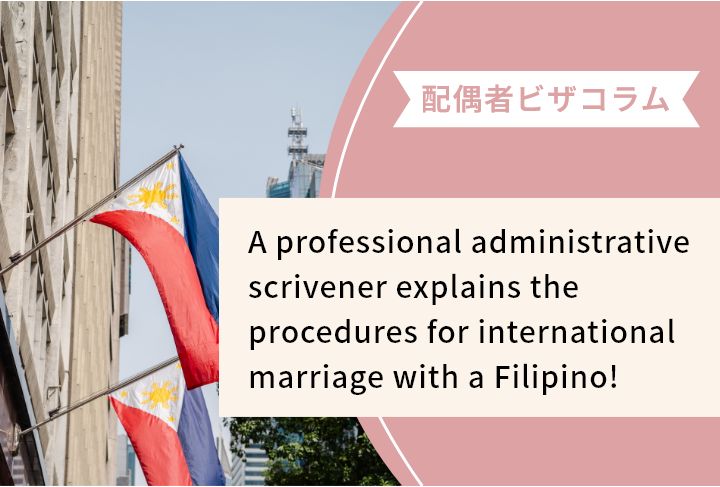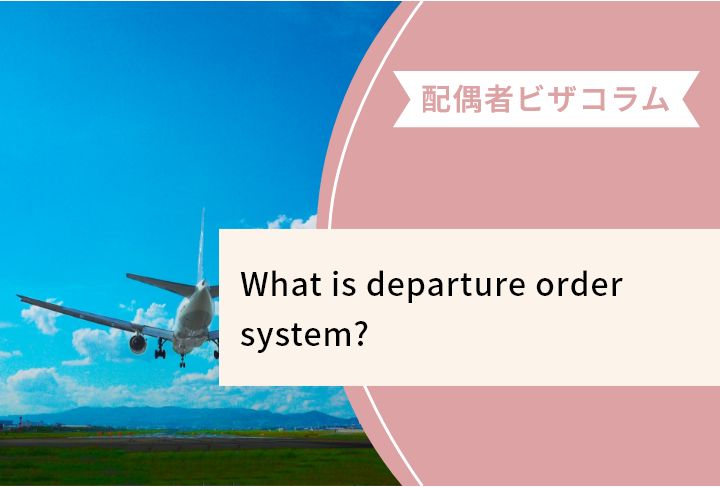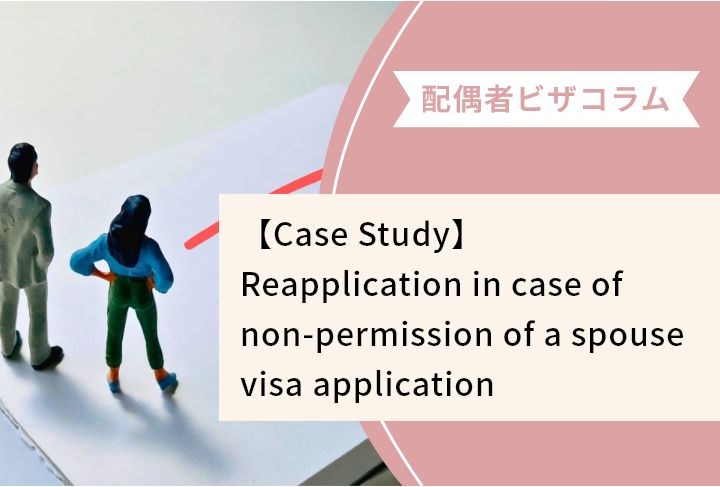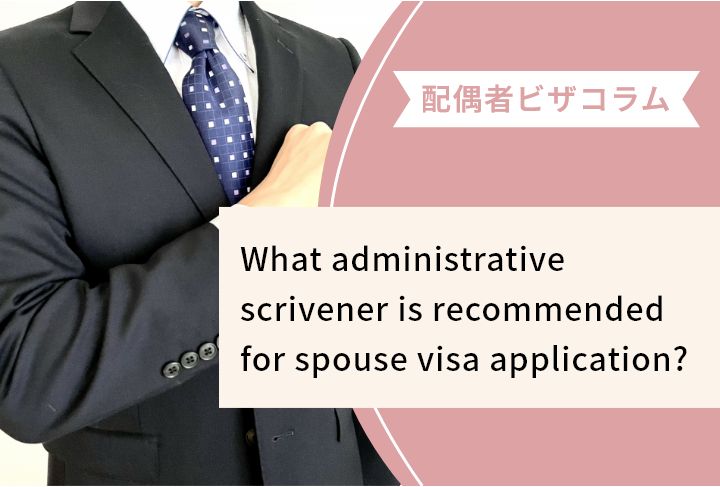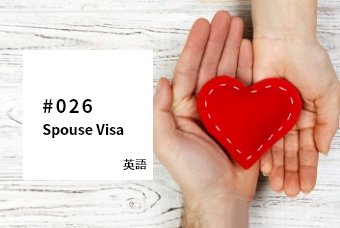What are the grounds for denial of landing?
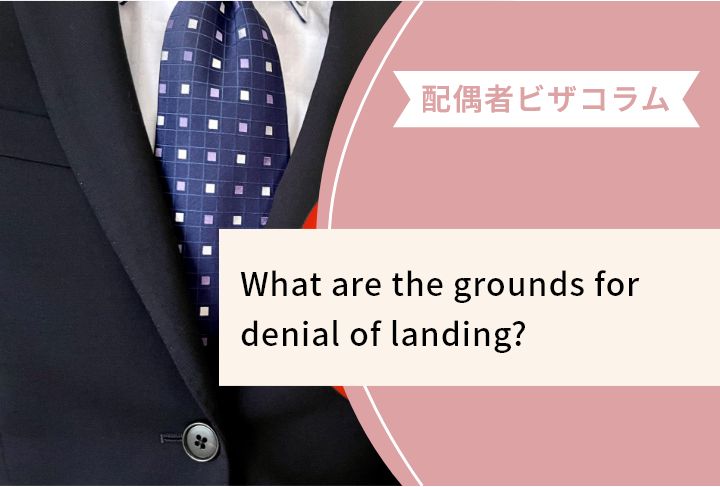
In Article 5 of the Immigration Act, the grounds for refusing foreigners to land are listed.
Those grounds listed in Article 5 of the Immigration Act are very specific.
Although there are some general provisions, you can still tell if landing is permitted or not in actual cases by reading Article 5 of the Immigration Act.
Let’s take a look at the grounds for denial of landing specified in Article 5 of the Immigration Act.
Index
1.What are the grounds for denial of landing as stipulated in Article 5 of the Immigration Act?
There is an established principle under international law which says that each sovereign state have the right to decide what kind of foreigners to enter the state. In other words, the Japanese government is permitted under international law to deny entry of foreigners who are unfavorable to Japan and to permit entry of only foreigners who meet certain requirements.
In Japan, from the perspective of protecting Japan’s national interests such as public health, public order, and domestic security, Article 5 of the Immigration Act stipulates the grounds for denial of landing.
2.The grounds for denial of landing as stipulated in Article 5 of the Immigration Act (paragraph 1)
The grounds for denial of landing are listed in Article 5, paragraph 1, items (1) through (xiv) of the Immigration Act. The Act also stipulates that a foreigner will not be able to land in Japan if he/she falls under any of the grounds for denial of landing.
Let’s take a look at the grounds for denial of landing provided for in Article 5 of the Immigration Act.
(i) A patient with category 1 infectious diseases, category 2 infectious diseases, pandemic influenza or designated infectious diseases provided for by the Act on Prevention of Infectious Diseases and Medical Care for Patients with Infectious Diseases (Act No. 114 of 1998) (limited to infectious diseases to which the provisions of Article 19 or 20 of the same Act applies mutatis mutandis, pursuant to the provisions of a Cabinet Order pursuant to the provisions of Article 7 of the same Act), including a person who is deemed to be a patient of category 1 infectious diseases or category 2 infectious disease, pandemic influenza, or designated infectious diseases pursuant to the provisions of Article 8 of the same Act (including as applied mutatis mutandis pursuant to Article 7 of the same Act), or any person who has symptoms of a new infectious disease
In line with the Act on the Prevention of Infectious Diseases, for the purpose of preventing the invasion of pathogens into Japan, such patients, etc. are treated as persons who are denied landing.
(ii) a person who, due to a mental disability, has a habitual condition of being unable to understand right from wrong or whose capacity for understanding is significantly lacking, and is not accompanied by those persons provided for by Ministry of Justice Order for that person’s assistance in engaging in activities in Japan
Previously, people with mental decease stipulated in Act on Mental Health and Welfare for the Mentally Disabled were denied landing. However, such uniform treatment of people with disabilities may hinder their social activities, so this item was revised and now it requires to be a person “not accompanied by those persons provided for by Ministry of Justice Order for that person’s assistance in engaging in activities in Japan,” to be denied landing.
(iii) a person who is indigent or without a fixed dwelling place and is likely to become a burden on the Japanese Government or a local public entity because of an inability to make a living
If the number of foreigners who expect public assistance in Japan increases, financial problems will arise in Japan. Therefore, this item was established to prevent an increase in the number of foreigners who may become a burden on the Japanese government or a local public entity.
(iv) a person who has been convicted of a violation of any law or regulation of Japan or of any other country, and has been sentenced to imprisonment with or without work for 1 year or more, or to an equivalent penalty; provided, however, that this does not apply to those convicted of a political offense
In practice, there are many inquiries as to this item in cases of landing denial. This item is applicable to cases of violation of Japanese laws and regulations, as well as foreign laws and regulations. Even if a person is convicted only of a suspended sentence, the person still falls under this item upon the sentence of imprisonment with or without work for 1 year or more. Furthermore, this item is applicable as long as the person has been sentenced to imprisonment with or without work for 1 year or more without considering the passage of time; therefore, a person applicable to this item is called a person falling under a ground for long-term denial or a person falling under a ground for permanent denial.
(v) a person who has been convicted of a violation of any law or regulation of Japan or of any other country relating to the control of narcotics, marijuana, opium, stimulant drugs or psychotropic drugs, and has been sentenced to a punishment
This item describes the ground for denial of landing of foreigners who have been convicted of a drug offense. Like item (iv) above, this item applies not only to foreigners who have violated Japanese laws but also foreigners who have violated foreign laws. The difference between this item and item (iv) is that there is no specification of heaviness of the sentence, and anyone who is subject to the punishment for committing any of the designated drug offenses falls under this item. Regarding drug offenses, strict operation is carried out comparing to other grounds for denial of landing in order to prevent inflow of drugs and organized crime.
(v)-2 a person who has been convicted of a violation of any law or regulation of Japan or of any other country or has been deported from Japan pursuant to the provisions of the Immigration Control and Refugee Recognition Act or deported from any other country pursuant to the provisions of any law or regulation of that country for killing, injuring, assaulting or threatening a person, or damaging a building or other objects in relation to the process or results of an international competition or a competition of an equivalent scale or an international conference (hereinafter referred to as “international competition, etc.”) or with the intent of preventing the smooth operation thereof, and is likely to kill, injure, assault or threaten a person, or damage a building or other objects in relation to the process or results of an international competition, etc. held in Japan or with the intent of preventing the smooth implementation thereof, at the venue of the international competition, etc. or within the area of the municipality where the venue is located (including special wards, and wards or administratively consolidated wards in designated cities prescribed in Article 252-19, paragraph (1) of the Local Autonomy Act (Act No. 67 of 1947)) or to neighboring places provided for use to unspecified or a large number of persons
This is a new regulation established at the time of revision of the Immigration Act in 2001. This item denies landing of foreigners who may cause assault cases, etc. at international competitions such as the World Cup, or at summit meetings or ministerial meetings, etc.
(vi) a person who illegally possesses any narcotics or psychotropic substances as prescribed in the Narcotics and Psychotropic Control Act (Act No. 14 of 1953), marijuana as prescribed in the Cannabis Control Act (Act No. 124 of 1948), or opium poppy, opium or poppy as prescribed in the Opium Control Act (Act No. 71 of 1954), stimulant drugs or stimulants’ raw materials as prescribed in the Stimulants Control Act (Act No. 252 of 1951), or any apparatus used to smoke opium
Similar to item (v), this item was established to prevent inflow of drugs and contamination of Japan by drugs. Regardless of whether a foreigner has been sentenced or not, if the immigration inspector independently identifies the foreigner as a person who falls under this item, the landing of the foreigner will be denied.
(vii) a person who has engaged in prostitution, or intermediation or solicitation of prostitution, provision of a place for prostitution, or any other business directly connected to prostitution (except for those who have engaged in these businesses under the control of another person due to human trafficking)
This ground for denial of landing was established from the viewpoint of preventing prostitution-related acts by foreigners. For the purpose of refusing the landing of prostitution workers, not only those who actually have engaged in prostitution but also those who have solicited or provided a place are denied landing.
(vii)-2 a person who has committed human trafficking or incited or aided another person to commit human trafficking
Previously, it was not possible to deny landing of perpetrators of human trafficking directly based on the fact of human trafficking. Therefore, this item was established at the time of the revision in 2005 for the purpose of preventing human trafficking.
(viii) a person who illegally possesses firearms, swords or other weapons as prescribed in the Act for Controlling the Possession of Firearms or Swords and Other Weapons (Act No. 6 of 1958) or explosives as provided for by the Explosives Control Act (Act No. 149 of 1950)
This item denies landing of foreigners who illegally possess dangerous objects such as firearms and swords that cause harm to humans.
(ix) a person who falls under any of sub-items (a) through (d) for whom the period set forth in the relevant provisions has not yet elapsed:
(a) a person who has been denied landing for any of the reasons prescribed in the provisions of either item (vi) or the preceding item: 1 year from the date of denial.
(b) a person who has been deported from Japan for any of the reasons set forth in the items under Article 24 (excluding item (iv), sub-items (l) through (o), and item (iv)-3) and who has not previously been deported from Japan or has not departed from Japan under a departure order pursuant to the provisions of Article 55-3, paragraph (1), before the aforesaid date of deportation: 5 years from the date of deportation.
(c) a person (except for the person set forth in sub-item (b)) who has previously been deported from Japan for falling under any of the items of Article 24 (excluding item (iv), sub-items (l) through (o), and item (iv)-3): 10 years from the date of deportation.
(d) a person who has departed from Japan under a departure order pursuant to the provisions of Article 55-3, paragraph (1): 1 year from the date of departure.
(a)・・・This sub-item sets forth that foreigners who are denied landing as illegally having drugs, etc. (item (vi)) or gunpowder in violation of Firearms and Swords Control Act/Explosives Control Act (item (viii)) are treated as persons who fall under the grounds for denial of landing for 1 year from the date of denial of landing.
(b) and (c)・・・The periods of denial of landing are 5 years if you are deported for the first time due to violation of the Immigration Act (sub-item (b)), and 10 years if you are deported more than once (sub-item (c)). Please note that “more than once” hereof includes departure order cases.
(d) ・・・ This sub-item sets forth that the period of landing denial is 1 year for those who have left Japan using the departure order system. Normally, if you are deported, sub-item (b) will be applied and you will be treated as a person who falls under the ground for denial of landing for 5 years, but as an incentive to use the departure order system, the period of denial of landing is shortened to 1 year.
(ix)-2 a person who has been sentenced to imprisonment with or without work on the charge of a crime provided for in Part II, Chapters XII, XVI through XIX, XXIII, XXVI, XXVII, XXXI, XXXIII, XXXVI, XXXVII or XXXIX of the Penal Code (Act No. 45 of 1907), or in Article 1, 1-2 or 1-3 (excluding the parts pertaining to Article 222 or 261 of the Penal Code) of the Act on Punishment of Physical Violence and Others (Act No. 60 of 1926), the Act on the Prevention and Punishment of Burglary, Robbery, Theft, etc. (Act No. 9 of 1930), or Article 15 or 16 of the Act on Prohibition of Possession of Special Picking Tools, and Other Related Matters (Act No. 65 of 2003), or Article 2 or Article 6, paragraph (1) of the Act on Punishment of Acts of Inflicting Death or Injury on Others by Driving a Motor Vehicle, etc. (Act No. 86 of 2013) during their stay in Japan with the status of residence set forth in the left-hand column of Appended Table I, who subsequently left Japan and whose sentence became final and binding while the relevant person was outside of Japan, a
This item is applicable to foreigners who reside in Japan with any of the statuses of residence in right column of Appended Table 1 (statuses of residence other than “Permanent Resident”, “Spouse or Child of Japanese National,” “Spouse or Child of Permanent Resident,” and “Long-Term Resident”) and are sentenced to imprisonment with or without work for a certain crime.
In addition, even in case a foreigner has voluntarily left Japan before the final judgement, if the judgement is made while the foreigner is away from Japan, he/she will be treated as a person who is denied landing under this item.
This item sets forth that even if a foreigner receives a suspended sentence, he/she will be treated as a person who is denied landing.
(x) a person who has been deported from Japan for falling under any of Article 24, item (iv), sub-items (1) through (o)
This item permanently prohibits the entry of foreigners who have been deported for any ground listed in Article 24, item (iv) of the Immigration Act.
(xi) a person who schemes or advocates the overthrow of the Constitution of Japan or the government formed thereunder by means of force or violence, or who organizes or is a member of a political party or any organization which schemes or advocates the same;
(xii) a person who organizes, or is a member of, or is closely affiliated with any of the following political parties or organizations:
(a) a political party or organization which encourages acts of violence or the assault, killing, or injury of officials of the government or of local public entities for the reason of being officials;
(b) a political party or organization which encourages illegal damage to or destruction of public facilities;
(c) a political party or organization which encourages acts of dispute to interrupt or prevent the normal maintenance or operation of the security facilities of a factory or other workplaces.
(xiii) a person who schemes to prepare, distribute, or exhibit printed particulars, motion pictures, or any other documents or drawings to attain the objectives of any political party or organization prescribed in item (xi) or the preceding item
Items (xi) (xii) and (xiii) stipulate the denial of landing of terroristic subversive persons. Even if you do not have a history of deportation, if you fall under any of the grounds in these items, you will be treated as a person who falls under the grounds for denial of landing.
(xiv) other than those persons set forth in items (i) through (xiii), a person whom the Minister of Justice has reasonable grounds to believe is likely to commit an act which could be detrimental to the interests or public security of Japan
It is difficult to specify all grounds for denial of landing by law, so this item exists in addition to items (i) to (xiii). This item stipulates that a person is treated as falling under the grounds for denial of landing when the Minister of Justice considers there is a reasonable ground to believe the person is likely to commit an act which could be detrimental to the interests or public security of Japan.
For example, as measures regarding the new coronavirus infection, this item has been used to refuse landing of foreigners from certain countries and regions.
Like this, this item is expected to contribute not only to diplomatic interests but also to economic and social interests.
3.The grounds for denial of landing as stipulated in Article 5 of the Immigration Act (paragraph 2)
Even if a foreign national seeking to land in Japan does not fall under any of the items of the preceding paragraph, if the country of which the foreign national is a national or citizen denies landing to a Japanese national for any ground other than those set forth in the items of the preceding paragraph, the Minister of Justice may deny their landing for the same ground.
Article 5, paragraph 2 of the Immigration Act stipulates that landing of foreigners can be refused if the countries where they are from have stricter regulations regarding the entry of Japanese nationals than Japanese Immigration Act. This is to deny landing based on the same conditions pursuant to reciprocity (or mutual security).
4.Summary of the grounds for denial of landing as stipulated in Article 5 of the Immigration Act
In this article, we have seen the grounds for denial of landing listed in Article 5 of the Immigration Act.
It is not easy to understand this Article accurately because not only it is linked to the grounds for deportation provided in Article 24 of the Immigration Act, but there are also some parts that require a cross-sectional understanding of the Penal Code, etc.
The Japanese basic policy is to reject the entry of foreigners who violate laws, except for some special cases where entry should be permitted for humanitarian purposes, etc.
If you fall under the grounds for denial of landing although you wish to enter Japan, please try our free consultation.








